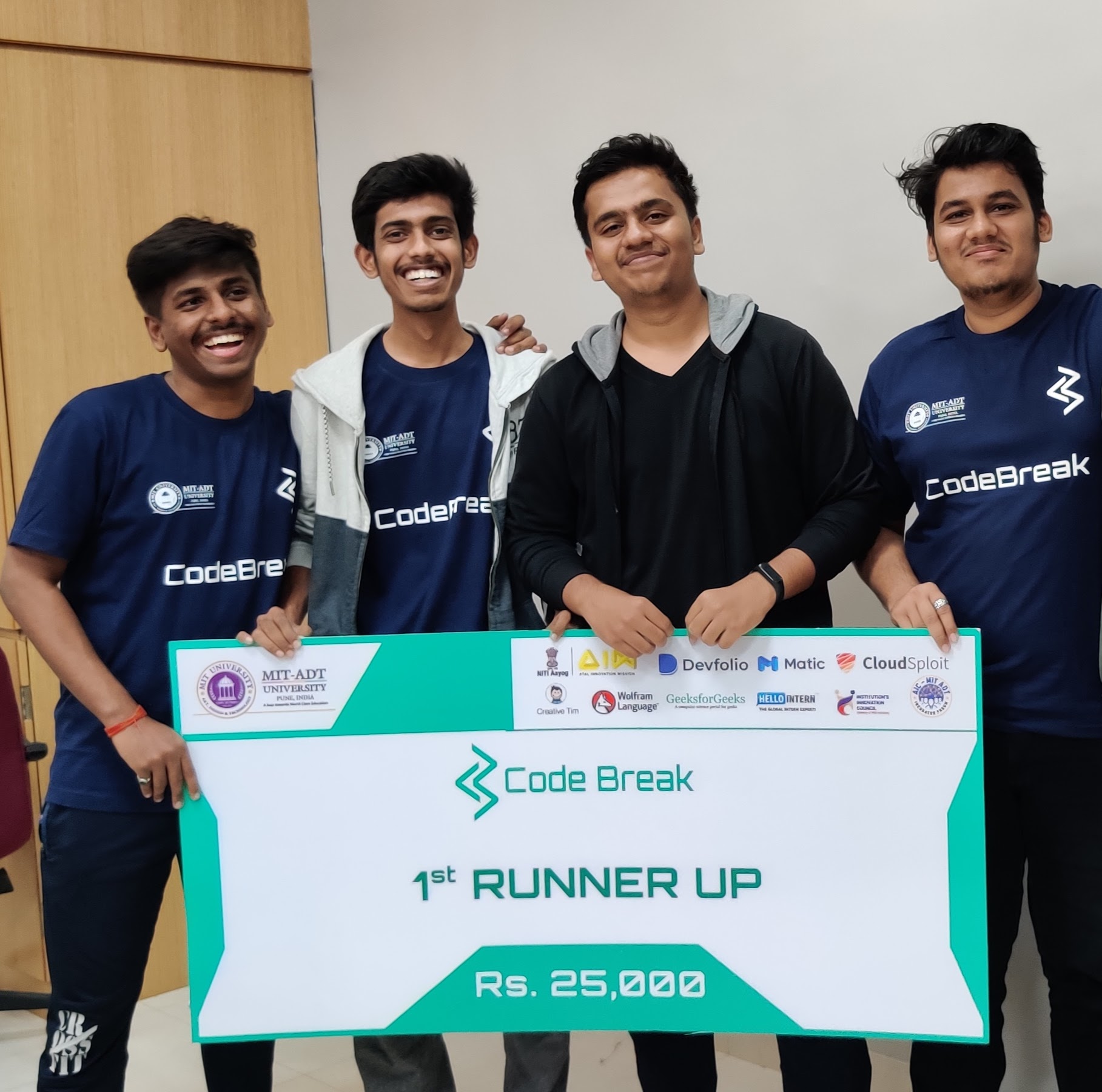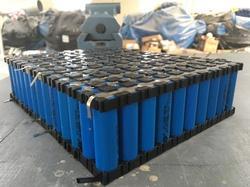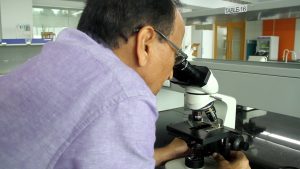All Management Events
- Dr. Ayesha Parveen Haroon January 9, 2020
- Dr. Shuvendu Rana January 8, 2020
- Career options after BA January 7, 2020
What are my career options after completing my BA?
Find yourself asking: after BA, what next? You’re not the only one. In science-and-tech-obsessed India, a bachelors in arts or a BA is often portrayed as a “lesser” option. Some parents even dissuade their children from an education in the arts, despite the student’s keen interest in a subject like history, political science, or English literature. The common assumption is that job prospects after a BA are poor. So, is that true? Absolutely not! As you will see through this article, your career options after a BA are rich and promising, with high-paying jobs after BA a reality. Apart from debunking the myth that a BA is a bad career choice, we would also want to stress on the importance of choosing your Bachelor’s degree according to your interest area, rather than what people think is popular. This way, you lay the foundation for a long and rewarding career that actually sustains your interest!
But first, what do I study in a BA?
In India, a BA degree is either a Pass course, in which you study a mix of subjects or an honours degree which specializes in one subject, such as a BA (Honours) in Political Science. Again, a BA Pass degree is regarded as inferior to an Honours degree, but fresh thinking suggests a Pass or multidisciplinary Bachelors may actually be useful from a career point of view because it trains you in many subjects. A Bachelors in Arts degree covers subjects in Liberal Arts, such as
- Languages, such as Hindi, English, Sanskrit, French and more
- Social Sciences, such as Economics, Political science, History, Psychology
- Humanities, such as English literature, Maths, Philosophy, Statistics, Journalism, and Fine Arts
What are Maths and Economics doing in a Bachelor of Arts?
Fun fact: Economics and Maths are traditionally recorded as Liberal Arts rather than science disciplines! Many colleges still offer a BA, rather than a BSc, in Maths. Since economics is a science about society, and since Maths is closely linked with music and art – think about fields like beats, dimension, perspective, and geometry – both of these are considered Arts subjects!
Where should I enrol for my BA?
Enrolling at a good college for your BA is important because this will give you a competitive advantage. If you’re planning to apply to a BA, work hard and ensure you have a good score in Class 12th so you can get the college and subject of your choice. Some of the best colleges for a BA in India are:
- Lady Sri Ram College, University of Delhi. Best for English, Economics, Maths, Psychology, Statistics, and Journalism
- St Stephen’s College, University of Delhi. Best for English, Philosophy, History, and Political Science
- Presidency College, Kolkata. Best for Political Science
- Christ Church University, Bangalore. Best for English and Economics
- Fergusson College, Pune. Best for Economics
- Loyola College, Chennai. Best for English, Economics, and Statistics
- SRM University, Andhra Pradesh. Best for Interdisciplinary Bachelors. You can customize 6-7 courses across Arts and Science disciplines.
- Ambedkar University, New Delhi. Best for Psychology and Fine Arts
- MS University Baroda. Best for Fine Arts
- Jawaharlal Nehru University, New Delhi. Best for BA in German, Spanish and other languages.
What are my career options after graduation in arts?
Like we’ve seen, the range of subjects covered under a BA degree are vast. Your career scope after a BA program will depend on your choice of subjects to a great extent. For example, A bachelors in English or communication will help you make a career in the media, while a BA in Statistics will prepare you for a career in insurance and risk management. However, one advantage of doing a BA is that your career choices are quite fluid; so, you can always for a career in advertising after a political science degree or pursue an MBA after an Honours in English. Based on whether you want to pursue advanced studies, or look for a job right after your BA, here are some career options:
Which is the best course after graduation in arts?
The best course is the one which most suits your interest and skills. Here are a few options you can choose from.
MA/ MPhil in your subject
In case you want to pursue a career in higher education and research, opt for a Master’s in your subject. You can be eligible to teach in a college after an MA if you qualify the National Eligibility Test (NET). You can further pursue an MPhil/ PhD from universities, such as University of Delhi, Jadavpur University, Kolkata, and SRM University, Amravati. Ever since the Sixth Pay Commission, educationists get very rewarding salaries.
Starting monthly salary for an ad-Hoc college professor: Rs 50,000 for a central university
Bachelors in Education
If you would like to teach at a school, you can pursue a Bachelors in Education, which is typically a two-year course. A B Ed qualifies you for school teaching, which is both lucrative and emotionally rewarding since you get to mentor the youth of tomorrow.
Starting monthly salary: Rs 25,000 upwards for pre-primary teachers; Rs 35,000 upwards for primary teachers
Law
After your 3-year B. A degree, you can appear for the Common Law Aptitude Test (CLAT) which enables you to get into a Bachelors of Law (LLB) program. After specializing in civil, criminal, corporate, or intellectual property law, you can join either a district or high court as a lawyer, or even work for the legal department of a firm. Where: National Law School of India University (NLSIU), Bangalore; Symbiosis Law School, Indian Law College (ILS), Pune; MSU, Baroda
Starting monthly salary: Varies greatly, starting from Rs 20,000 for a lawyer at a districts court
MBA
Students often ask: can I do an MBA after a BA in English or History? Of course, you can! A graduate from any discipline can apply for an MBA after a BA. You will be required to take the CAT for the IIMs and other entrance exams for institutes such as the IIMs, and other exams for institutes like XLRI, Jamshedpur and Indian School of Business, Hyderabad. A great option for MBA after your BA is MICA (once known as the Mudra Institute Communications, Ahmedabad) which offers an MBA in Marketing and Advertising. In an MBA, you can specialize in options such as finance, marketing, human resources, foreign trade, and more. Depending on your specialization, you can work as a manager in various departments of Indian and multinational companies, such as American Express bank, tech giants like Google and Intel technologies, and consulting firms like KPMG and Deloitte. Choose a specialization allied with your strengths to get the most out of your MBA degree.
Starting monthly salary: Graduates from tier-1 colleges like IIM Ahmedabad and ISB can expect a monthly average salary of Rs 1,25,000.
Postgraduate courses and diplomas in journalism
Have a distinctive voice and want to make it heard? A master or postgraduate diploma in business journalism after your B. Com prepares from institutes such as the Asian College of Journalism (ACJ), Chennai, and Indian Institute of Mass Communications (IIMC), Delhi prepares you for a career in print, TV, or digital media! You can work as a reporter, writer, or editor with a newspaper, news agency, TV channel, or website, depending on your preference and specialization. Popular employers in India are the Times Group, the Indian Express, TV18, and NDTV.
Starting monthly salary: Reputable print and digital media outlets pay a starting salary ranging from Rs 25,000 to Rs 40,000. For TV channels, the salary can go up to Rs 60,000.
Masters in Social Work
If you want to make a difference to the world around you, a Masters in Social Work is a good option. This course prepares you for a career with non-profits, in the corporate social responsibility arms of MNCs, healthcare, and counselling, depending on your stream of specialization. The Tata Institute of Social Sciences (TISS), Mumbai, as well as the Department of Social Work, University of Delhi offer very reputable Masters in Social Work (MSW) degrees.
Starting monthly salary: Rs 20,000 with small non-profits to Rs 50,000 and upwards for large non-profits, MNCs, hospitals, and governmental organizations.
What if I want to apply for a job after my BA?
You have many options here too. Some great options are listed below.
Government jobs after BA
Government jobs after a BA are a good option. A BA is especially useful in preparing you for the Indian Administrative Exams (IAS), and the Provincial Civil Services Exam (PCS) as many questions in the preliminary exams cover subjects such as Indian politics, history, and general knowledge. Most such competitive exams for the Central and state government require only a Bachelor’s degree, so they are always a good option.
Hot tip: Though subjects like political science and history are evergreen options for government exams, specializing in subjects like Sanskrit or Philosophy is also a good choice, since these subjects are high scoring.
Monthly salary range: Upwards of Rs 50,000 for IAS and PCS.
Defence jobs
After your BA, you can take the NDA (If you are under 19) or CDS (between the ages of 19 and 24) recruitment exams to join the defence forces. Apart from numerous perks, the monthly salary ranges for the lieutenant rank in the army is upwards of Rs 50,000 (basic pay).
Banking jobs
You can also take bank exams to join public sector banks, such as Bank of Baroda and Punjab National Bank, or the separate RBI exam for the Reserve Bank of India. The RBI exam is a great option, though quite competitive.
Starting monthly salary: upwards of Rs 38,000 for probationary officers (PO) in banks, Rs 68,000 for RBI Grade B officers (including basic pay and benefits)
Private jobs
Journalist
Journalism is a great career option after a BA in English. You can join a newspaper, television channel, or digital outlet as a reporter right after your graduation; though without a postgraduate diploma in journalism, you may be required to take an editing and general knowledge test. Remember to brush up on your language skills and reading before taking such an exam!
Starting monthly pay: Rs 25,000 upwards
Content writer
Writing for a website, blog, or business is a good option, especially if you are creative and good at secondary research. It helps if you establish a niche, such as education, lifestyle, business, or healthcare and specialize in it. You can work with businesses from Amazon to Myntra to Nykaa to Microsoft as a content writer. Often, you may be required to undertake a writing test.
Starting monthly salary: Depending on the size of the outfit, this can range from 15,000 to Rs 40,000 for Microsoft and Nykaa
Copywriter
Have a knack for coming up with catchy hashtags and memorable slogans? You have a good chance of joining an ad agency as a copywriter right after your BA. Most ad agencies, such as Leo Burnett, Ogilvy and Mather, and Dentsu will require you to take a copy test to evaluate your creativity and language skills.
Starting monthly pay: Rs 20,000 upwards
An executive with a multinational corporation
If you have a BA in subjects like Economics, Statistics, or Maths, you can join an MNC as an antry-level associate, consultant, or executive. Companies such as Price Waterhouse Cooper, JP Morgan, and McKinsey often hire freshers.
Starting monthly pay: Rs 30,000 upwards
Researcher
Whether it be news agencies, NGOs, or corporates, all organizations require researchers who can collect, process, and archive data. You can join news organizations such as NDTV, NGOs such as CRY and Goonj, or MNCs like Gartner as a researcher right after your BA.
Starting monthly pay: Rs 15, 000 (for small non-profits) to Rs 20,000 upwards (for larger NGOs, media agencies, and MNCs)
Translator
Have a BA in French, Spanish, Japanese, Urdu, or Sanskrit? Or are you fluent in more than one language and have a flair for translation? You can work as a translator for a publishing house, a multinational corporation, travel agencies, and embassies. Fluency in foreign languages, especially those that are tough to master, such as Japanese, can be especially lucrative.
Starting monthly salary: Rs 20,000 (for publishing houses) to Rs 40,000 upwards (for large translation agencies and MNCs)
PR Executive
All large organizations and many smaller ones have public relations arms, so there is no shortage of PR and marketing jobs. A Bachelors in English or communications presents an additional advantage in getting a job in public relations, marketing, and sales. Though starting salaries in these fields may be low, the ramp up can be fast if you exhibit good language, communication, and sales skills.
Starting monthly salary: Rs 15,000 upwards for small organizations to Rs 30,00 and more for larger companies
Graphic designer or illustrator
In a world increasingly attuned to the visual medium, this option is perfect for those with a Bachelors in Fine Arts. Advertising agencies, production houses, design and branding studios, as well as media houses, often require illustrators, so brush up your portfolio!
Starting monthly salary: Rs 25,000 and upwards
With all these options around, a Bachelor in Arts can be a hidden advantage, especially since studying humanities and liberal arts subjects often hone your communications skills and emotional quotient, factors that go a long way in building a fruitful career.
Continue reading → - SRM AP welcomes the new year with grandeur! January 2, 2020
“We felt at home away from home with our friends at SRM AP who have become family”- Apurba Kumar Howlader (3rd year, Mechanical Engineering).

As dusk fell on the eve of the new year, an extravagant celebration was witnessed at the SRM AP campus. The basketball court was stunningly decorated with disco lights, a perfect backdrop for the celebration.

The ambiance was set with soulful performances by “Diversity”-the student’s band led by the lead vocalist Asim along with Suchet B Thapa on guitars, Srijan B Thapa with clap box, and Srijeet Tomrokar as an acoustic guitarist.

The new year is the time to cherish the fond memories of the passing year before bidding farewell to it. The students participated in the competition “Rewind 2019” where they had to create a video on their memorable moments spent in SRM AP. Sukumar (2nd year, Computer Science Engineering) bagged the first prize in the competition whereas, Parshal Chitrakar (3rd year, Computer Science Engineering) himself narrated his year’s journey on camera to become the runner up.
The much-awaited “DJ Night” began right after where the students grooved to English, Hindi, and Telugu music handpicked by Sukumar. “Nothing could have been better than this celebration right before the turn of the year where we got to spend time with our mates”, says Sreelekha Bhuvaneswari (2nd year, BSc.Physics)

The countdown to 2020 began at midnight and soon enough skyrockets shot off to declare that we stepped into the new year. A cake-cutting ceremony by Wng Cmdr Venkataachalam Sekkappan (Director-CLM) marked the end of the day. Suchet B Thapa (3rd year, Mechanical Engineering) wraps it up aptly by saying, “The jazzy celebration is a 20 on 20 to begin the year 2020”.


Continue reading → - Next Tech Lab students end the year with a win! December 28, 2019

Next tech lab students achieve yet another milestone in Hackathon Codebreak 1.0 organized by MIT ADT University, Pune on 21st and 22nd December, 2019. The team- Rushank Jain, Suraj Maharana, Omkar Ingale, and Ajay Kumar participated from SRM AP in this national level hackathon, where they competed with students from IIIT, BITS, Bennet University, K.J. Somaiya and many more. The panel of judges comprised of experienced personnel from IBM, Siemens, and Xpansion.
Our team built a Virtual Reality application that tackles tourism, medical and social issues. The students mitigated the challenge of not having a 360-degree camera by capturing images on their phone, and doing the laborious work of stitching more than 80 images and later, automated the process by utilizing their skills in OpenCV. The students surmounted all the quandaries and made it to the 1st runners up prize among 40 other teams.

The students expressed their gratitude to SRM University AP for providing the opportunity to attend this hackathon and for fortifying them throughout. “It was my first time participating in a competition at such a large platform. It was an amazing experience competing with so many brilliant minds and learning so much from the exchange. We are expecting 2020 to be full of achievements and fun”, says the young achiever of SRM AP- Rushak Jain.
Continue reading → - Lithium ion batteries research a nobel cause_MPS December 27, 2019

Lithium-ion Batteries Research: A Nobel Cause
If the portable electronics industry has revolutionised the way we communicate today, then we have a lot to thank Lithium-ion Batteries for providing the building blocks. These humble batteries have powered this high tech revolution. It’s probably why Lithium-ion Batteries are rated as one of the most influential pieces of materials science that impact modern life. So when John B Goodenough, University of Texas at Austin, M Stanley Whittingham, Binghamton University, and Akira Yoshino, Meijo University, were announced as Nobel Prize winners in Chemistry for their work on Lithium-ion Batteries, it was a seen as a recognition long overdue.
Long-standing impact
After Royal Swedish Academy of Sciences in Stockholm announced the distinguished winners of the richly deserved awards it said in a statement, “Lithium-ion Batteries have laid the foundation of a wireless, fossil-fuel-free society, and are of the greatest benefit to humankind.” They have been the bedrock for the modern technology-driven world we live. It’s interesting to note that Lithium-ion Batteries have been around for three decades. While mobile technology has gone through a dramatic change only in the past few years, battery technology hasn’t bettered Lithium-ion Batteries for 30 years. That shows you what a powerhouse of a discovery it has been.
Research background
It was in the 1970s that M Stanley Whittingham began the work to overcome the drawbacks of earlier rechargeable batteries, mostly the amount of energy they could store. Lithium’s properties made it an ideal material for the batteries. His first Lithium Battery was also developed in a bid to promote and look for fossil-free energy solutions. However, the batteries ran the risk of exploding, which is why he added Aluminum to Lithium in the anode of the battery. John B Goodenough used Cobalt Oxide for Cathode and it instantly doubled the battery voltage. Akira Yoshino used the technology to create the first commercial battery in 1985.
Changing the future forever
John B Goodenough aged 97 is the oldest Nobel Laureate ever. According to him, when he started his work on Lithium-ion Batteries, he couldn’t imagine the impact they would have. “I didn’t know what electrical engineers would do with the battery. I really didn’t anticipate cellphones, camcorders and everything else,” he said in an interview. But the fact is that today they are at the heart of several modern technologies, from mobile phones and laptops to electric cars. Since Lithium-ion Batteries hold the electric charge longer, they have intrinsically enhanced the viability of electric cars that will be the need of the future.
Lithium-ion Batteries have broadened the spectrum of sustainable energy resources. That’s because they are capable of storing energy from the Sun, Wind and more. These renewable resources will be expected to power our planet’s future. And Lithium-ion Batteries will be making it possible, thus sustaining our tomorrow.
SRM University-AP has set up Amara Raja Center for Energy Storage Devices in collaboration with the Amara Raja Group. The center is fueling the advanced research on Li-ion and beyond Li-ion batteries that aims to revolutionize the world in upcoming years. Ultra-fast charging of devices, new materials for energy storage devices, more efficient batteries and even more R&D are being carried at the center.
At SRM University- AP, we realise the need for research for making the world a better place and we strive to make it happen, for us and for you!
Continue reading → - Prof. C. Durga Rao brings his crucial research to SRM University, AP and tells us why it will be a hub of worldwide R&D facilities December 27, 2019
 The fact that academics in the country are responsible for staggering amounts of research is well known. But it’s not very often that you come face to face with someone involved with life-saving medical research. Prof. C. Durga Rao has been a part of the team responsible for the development of Indian Rotavirus Vaccine. During his long stint with Indian Institute of Science, he worked on childhood viral diseases, primarily Rotavirus, and Enteroviruses, which are related to Polio Virus. Now he is setting up the laboratory at SRM University, AP to continue the vital work while helping students imbibe crucial research skills. What’s the progress? Read on.
The fact that academics in the country are responsible for staggering amounts of research is well known. But it’s not very often that you come face to face with someone involved with life-saving medical research. Prof. C. Durga Rao has been a part of the team responsible for the development of Indian Rotavirus Vaccine. During his long stint with Indian Institute of Science, he worked on childhood viral diseases, primarily Rotavirus, and Enteroviruses, which are related to Polio Virus. Now he is setting up the laboratory at SRM University, AP to continue the vital work while helping students imbibe crucial research skills. What’s the progress? Read on.Bringing it home
As part of the team at the prestigious Indian Institute of Science, Prof. Rao played a crucial role in the development of the first indigenous viral vaccine developed and produced in India. He asserts that he joined SRM University, AP because it offered him an opportunity to continue with his research. “The administration is supportive and determined to develop the University as a research-oriented institution. I am sure that the coming years are going to be very significant for the R&D of the university. Though we are a new organization, the intellectuals gathered at the university are exceptional,” he says enthusiastically.


Multidisciplinary model, multidisciplinary talent
Dr Rao’s enthusiasm, high energy are befitting of a researcher bursting with ideas, looking forward to making his University a significant contributor among worldwide R&D facilities. Given the multidisciplinary nature of studies and collaborations at SRM University-AP, he is also excited about working with researchers who are experts in fields like Nanotechnology, Gerontology and more. “But since we are working on the multidisciplinary and interdisciplinary models, mostly I have engineering students. So making Biology interesting to them is crucial,” he speaks of translating his passion onto his students.
Encouraging future researchers and thinkers
Dr Rao reveals that at SRM University, AP the focus is on the active participation of students. They are encouraged to ask questions and get marks for it towards their annual grading. The idea is to increase engagement that results in their all-round intellectual development. “In my biology class, we go from how life evolved to the latest advancements in the field. We also teach Data Analysis in Biology, which is an amalgamation of latest Data Analysis technologies with the standard practices of Biology. We want to keep things relatable and stimulating to help students apply their minds and be successful in careers they choose,” he spells out the long term goal.
Continue reading → - Christmas carnival at SRM AP December 27, 2019

This Christmas, SRM AP campus witnessed a two day grand celebration. The student council and volunteers assisted by the Student Affairs department started the preparation 10 days back. The reception area and the grand staircase was decked up with christmas tree, snowman, gingerbread house and a crib.
Christmas Eve celebration on 24th began at 4pm in the reception area with cake cutting ceremony by Prof D Narayana Rao (Pro VC), Prof D Gunasekaran (Registrar), Wng Cmdr Venkataachalam Sekkappan (Director CLM) and Revathi B (Assistant Director- Student Affairs). The celebration then shifted to the grand staircase where the students sang christmas carols, followed by semi-classical dance by 1st year student- Sahithi. Other performances included western dance by Pavan. Antakshari was played among the students to add to the fun quotient. Post a sumptuous dinner, Home Alone was screened at night in the grand staircase.

On 25th evening, faculty and Ph. D scholars joined the students to celebrate Christmas. The wardens of the four hostel towers was given the task to decorate a christmas tree. Each of the residents including the faculty participated to win the best tree decorator award, which was won by the the tower four girls.
Continue reading →
At 5 pm, the event kickstarted with fun games such as tug of war between boys and girls separately, passing the parcel and impromptu by 3rd year students- Aakansha Chauhan and Amina. Delicious butter cookies were baked and served before the special christmas dinner. At night, the students enjoyed the movie screening of Polar Express along with piping hot cups of hot chocolate. The Student Affairs department extended their heartfelt gratitude to Sukumar, a student who handled the PA system, Photography Society, and all the students and faculty for successfully pulling off this massive celebration that was enjoyed by all.

- Dr Vaddi Ramesh December 10, 2019
- Five jobs for Mechanical Engineering December 9, 2019
What to do after a Bachelor’s in Mechanical Engineering?
If you love to know how things work and invent new products, a career in mechanical engineering may be perfect for you. Popularly known as the “mother of engineering,” mechanical engineering relates to concepts such as mechanics, thermodynamics, robotics, kinematics, structural analysis, fluid mechanics, and many others. These concepts are applied in the process of designing customised manufacturing units, different types of automobiles, aircraft and aerospace parts, and anything and everything else you can think! This article answers all your questions about what the job of a mechanical engineer entails, and the career paths available for you after a BTech/ BE in mechanical engineering.
What is the job description of a mechanical engineer?
So, what does a mechanical engineer do: Hint: the answer is in the name of the job itself. As you can probably tell, mechanical engineers create, structure, test, and improve mechanical devices such as tools, engines, and machines. This includes everything from refrigerators to the parts of a Boeing aeroplane. Because mechanical engineering has such vast applications, mechanical engineers work everywhere — in engineering services, research facilities, manufacturing industries, and various government bodies. Typically, a mechanical engineer will spend most of his or her time in the office, but occasionally on the field as well, often partnering with architects, computer scientists, product designers, and managers. Apart from making and testing prototypes of machines and equipment, mechanical engineers also supervise the installation and maintenance of machinery, as well as troubleshooting problems with machines. Tech-y in nature, mechanical engineers, often use computer-aided design (CAD) packages to produce blueprints that contain the specifications for their projects. They also work on evaluating and testing designs and redesigning and upgrading systems.
Is mechanical engineering a good career for me?
Because of its broad applications, mechanical engineering is a great career option. Every industry from aerospace to robotics needs mechanical engineers and pays well for them. For a mechanical engineer fresher, the starting salary ranges upwards from Rs 20,000 – Rs 30,000 a month. If you have an aptitude for physics and the following qualities, mechanical engineering is also a career path that will keep you fulfilled. Here are a few more skills you’ll need for a career in mechanical engineering:
Innovative skills. Since mechanical engineers design new machines and equipment, they need to be inventive and innovative.
Communication skills. Like said earlier, a mechanical engineer’s job involves frequent collaboration and teamwork. The ability to articulate different approaches and listen to varied perspectives is an essential skill set for mechanical engineers.
Computational skills. As a mechanical engineer, you will need to use many advanced maths subjects, such as linear algebra, calculus, and stats to analyse, create, and test equipment. An aptitude for maths and computation is thus a must for mechanical engineers.
Skills to work under pressure. The job of a mechanical engineer often involves developing complex technical solutions under a deadline. Therefore, you must be able to work in an intense environment to succeed as a mechanical engineer.
Problem-solving skills. Mechanical engineers need to apply scientific principles and theories to design and create new products. Thus, the job requires strong problem-solving skills.
What are my career options after mechanical engineering?
Given its vast applications, the list of mechanical engineering career options is unending, but let’s take a look at the top three:
1. Go in for further studies
Mechanical engineering graduates can find work in various sectors right after graduation, but pursuing an advanced course opens avenues for better employment opportunities. Here are four popular further study options in core engineering, as well as non-core careers, after a BE in mechanical engineering:
a. MTech in Mechanical Engineering
The logical “next-step” advanced course for a mechanical engineer is, of course, an MTech in mechanical engineering. You can pursue an MTech in mechanical engineering from prominent institutes such ss the IITs, NITs, BITS, and many other regional colleges. This is a 2-year full time program which you can pursue after your BTech/ BE. Engineering graduates who are working also have the option to pursue a 3-year-long part-time regular program. Admission for MTech courses depends either on the grades in your bachelor’s degree or on the Graduate Aptitude Test in Engineering (GATE) score and an interview. In your MTech course, you can specialise in mechanical engineering design, industrial and production engineering, thermal engineering, automobile engineering and more.
Where: SRM University Amravati, Andhra Pradesh, all major government institutes such as the IITs and NITs
Job prospects: Work with multinational manufacturing corporations; teach at an engineering college; work as a consultant in transportation, logistics and automobile engineering firms; work with the software divisions of IT giants like IBM, which support automobile engineering conglomerates like Ford and other heavy machinery manufacturing companies; work as navigating officers or marine engineers in naval companies.
Starting monthly salary: Rs 35,000 and above
b. MTech in Artificial Intelligence and Machine Learning
Artificial Intelligence (AI) and machine learning are extremely promising upcoming broad disciplines that seek to simulate numerous innate human skills such as case-based reasoning, data analysis, fuzzy logic, decision-making, natural language processing, language translation, pattern recognition, and speech recognition. In addition, machine learning is an AI subset that enables a system to learn and improve from experience. The advantage of artificial intelligence and machine intelligence technologies is that they bring more complex data-analysis features to existing applications. Other related disciplines are cyber security and data science. Entrance to all such MTech courses may require GATE.
Where: SRM University, Amravati, Andhra Pradesh
Job Prospects: Work at space research organizations like ISRO; work as a research analyst with companies like Google; work as an AI researcher with institutes like the IITs.
Starting monthly salary: Rs 50,000 and above
c. MTech in Robotics
Another great advanced study course for mechanical engineering graduates is robotics. Robotics involves the scientific study of the design and manufacturing of robots, which nowadays are used in fields as diverse as customer service to surgery. This branch of engineering has a lot of potential applications, providing many career opportunities for robotic engineers. May require GATE.
Where: The IITs, Jadavpur University (Kolkata), the University of Hyderabad
Job Prospects: As a robotic engineer, you can work with space research organisations, in industries which manufacture microchips, in the defence sector, in medical and automobile industries and many more. Once you’ve completed your MTech, you can take jobs in manufacturing, maintenance, research of nuclear power plants and many other areas. Due to the advancement of technology, robotics technology is used in space exploration, power plant maintenance, the automobile industry, and finding new petroleum and crude oil sites. Admissions to an MTech in robotics requires you to pass the GATE exam.
Starting monthly salary: Upwards of Rs 35,000-40,000
d. Masters in Business Administration
Finally, a popular course for mechanical engineering graduates is a postgraduate diploma programme in management or an MBA from a reputable business school. If you’re interested in non-core engineering career prospects, an MBA is a great bet for you! You’ll be required to pass the CAT (combined aptitude test) or various other entrance exams to gain admission into an MBA programme. The combination of an engineering degree and an MBA is very helpful in getting jobs in managerial positions. An MBA offers a wide choice of career options.
Where: All the IIMs; XLRI, Jamshedpur; Indian School of Business, Hyderabad; various government and private institutes
Job prospects: Work as an analyst, executive, or manager with Indian and multinational corporations.
Starting monthly salary: Varies greatly, depending on your graduating discipline and institute. Average starting monthly salary is in the range of Rs 50,000 to upwards of Rs 1,00,000.
2. But what if I want to get a job right after my Bachelors in Mechanical engineering?
Go for it, because there are several well-paying job opportunities for mechanical engineering freshers. In fact, getting a few years of work experience before going in for advanced studies is a good idea, because it equips you to deal with real-world conditions. Let’s take a look at four types of mechanical engineering jobs for freshers in the private sector, and the starting salaries you can expect:
a. Auto research engineers work to better the performance of cars. These engineers work to improve the traditional features of cars such as suspension, and they also work on aerodynamics and possible new fuels. An automotive engineer makes and improves equipment and structures related to automobiles. As an automotive engineer, you can work for a company that manufactures original equipment or for a company that manufactures cars, such as Ford, Volkswagen, etc. Since you will be designing a large part of your work on a computer using CAD software, expertise in design software is essential. But don’t think it is just a desk job; a lot of automotive engineering involves hands-on work, such as tests that are carried out to try out new technologies. The starting salary for an automotive engineer in India is Rs 20,000 to Rs 25,000 per month, while the median salary can easily be upwards of Rs 60,000 per month.
b. Heating and cooling systems engineers work to design and support environmental systems wherever temperatures and humidity must be kept within certain limits. Where are such systems most needed? Think of environments like airplanes, trains, cars, schools, hospitals, and even computer rooms. The starting salary for a heating and cooling system engineer in India is Rs 20,000 to Rs 25,000 per month, while the median salary can easily be upwards of Rs 60,000 per month.
c. Simulations engineers play a vital role in complex engineering projects. As the job title implies, the work of a simulation engineer involves testing the performance, safety, and durability of any piece of equipment in a virtual environment that simulates or mimics real world conditions. Since testing in real-world conditions can be extremely expensive, simulation offers a distinct cost-advantage for companies. Additionally, with the help of simulation, a manufacturer/ engineer can understand the behaviour and life cycle of a product before even building a prototype. Thus, simulation solves problems, saves time and money, and improves product and product development process. Apart from tech giants like Bosch and Siemens, companies working in the fields of bio-mechanics, medicine, pharmaceuticals, aerospace, automobiles, energy, and consumer goods also utilise simulation. The average starting monthly salary for a simulation engineer in India varies greatly, from Rs 22,000 for a company like Tata technologies to upwards of Rs 60,000 for multinational companies like Eaton.
d. Computer-aided design (CAD) engineers design products using computer-aided design software applications such as AutoCAD, Pro/ENGINEER, and SolidWorks. A CAD engineer designs products, creates and tests prototypes, and oversees other drafters. The main responsibilities of a CAD engineer include designing frameworks for a project, working with industrial and packaging engineers to develop, create, and sell a product, and analysing design and building business/technical solutions that deliver the client’s goal. The starting monthly salary for a CAD engineer (not to be confused with a CAD technician) is upwards of Rs 30,000.
3. And what if I want to work with the government and PSUs?
That’s a lucrative and stable option as well. Working with government departments like the ISRO and PSUs like Bharat Heavy Electrical (BHEL), and Indian Oil Corporation (IOC) is an excellent career path after mechanical engineering. Like the MTech, you need to clear the GATE exam to qualify for various PSU and government jobs. The starting salary varies across departments and organizations and ranges from Rs 20,600 to Rs 46,000 per month.
So, there you have it, whether you want to pursue core engineering options, or branch out into non-core areas like management, a degree in mechanical engineering is a solidly structured (pun intended) foundation for your career!
Continue reading →

